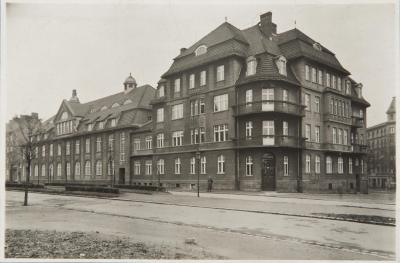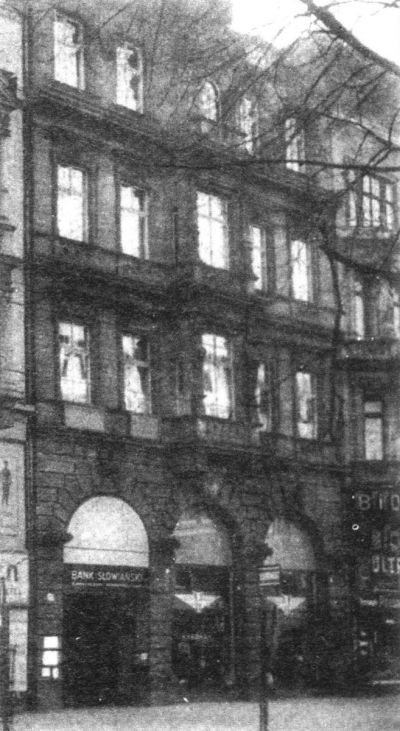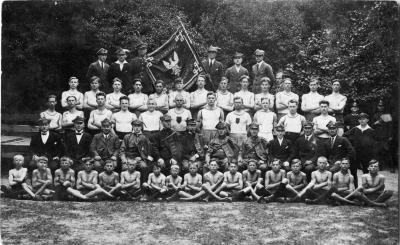The Polish grammar school in Marienwerder (Kwidzyń)

All the building work and interior decorations were completed in 1936. However the German government deliberately delayed the opening of the school because it feared that a powerful educational unit would endanger its Germanification policies by educating a future Polish elite in Warmia and Masuria. Between 1934 and 1937 the “Union of Polish School Societies” was forced to to send over 100 reminders to the German authorities to allow the school in Marienwerder to be finally opened. The refusal of the German government to come to a decision was met with outrage by the Polish community. To put pressure on the Germans, the Pomeranian board of trustees in the school district decided to close the two largest and most popular German grammar schools in Bydgoszcz and Grudziądz at the start of the 1937/1938 school year. It did not have to wait long for the reaction it hoped for. On 31st October 1937 the president of the regional government, von Kendel, informed the “Union of Polish School Societies” that the Prussian Ministry for Schools had decided to allow the grammar school in Marienwerder to open. The school was officially opened on 10th November in the presence of the Chairman of the Union of Poles in Germany, Pastor Bolesław Domański. The official name of the school was the “Private School with a Secondary School Programme and Polish Teaching Language in Marienwerder”. The headteacher was Władysław Gębik, a biologist by profession. He was born in 1900 in Szczyrk near Limanowa and died in Kraków in 1986. He went to grammar school in the parish of Myślenice in Galicia and then followed a course in agriculture at the Jagiellonen University in Kraków. In 1920 he voluntarily enlisted in the Polish-Soviet war. He ended his studies in 1924 with the title of engineer. As well as working he continued his studies at the University in Poznan, and in 1928 was awarded a diploma as a secondary-school biology and chemistry teacher, before being awarded the title of Doctor of Philosophy in 1932.
There was a high level of teaching in the grammar school, which enrolled 94 boys in its first year. They followed the usual courses as well as having a Polish patriotic education. The staff consisted of 13 teachers of whom five were German citizens. The remainder were Polish citizens. Irrespective of where they lived all the students were duty-bound to live in the boarding school. The teachers and other members of staff also lived in the school. In this way the school aimed to perfect the independence of its students and build a sense of community. The school had its own hymn, the so-called “Marienwerder Song”. It began with the words: "Przeminęły już wieki a myśmy ostali, burzom dziejów nie dali się zgnieść" / “100 years have now gone by, but we have remained, do not let ourselves be crushed by the tempests of history”. The song was composed in March 1938 by a teacher named Leon Kauczor.
During the first two years of its existence the German government and the local population harassed the school with a number of dirty tricks, including intimidation measures and physical assault. In 1939 the Germans increased their repressive measures against the school. On 25th August of the same year the students and teachers were arrested and interned in a psychiatric institution in Gvardeysk (now in Kalingrad Oblast in the Russian Federation). All the students under 18 were released in the second half of September 1939, the older students were forcibly enlisted in the German army and the teachers and other members of staff imprisoned in the concentration camps in Stutthof, Mauthausen, Sachsenhausen and Gusen. Many of them did not survive the war. The grammar school was closed down. At the end of the Second World War the school was reopened in Marienwerder (Kwidzyń) which now lay within the borders of Poland. Today the traditions of the grammar school are continued in the “I. Allgemeine Lyzeum” in Marienwerder.
Krzysztof Ruchniewicz, June 2014


